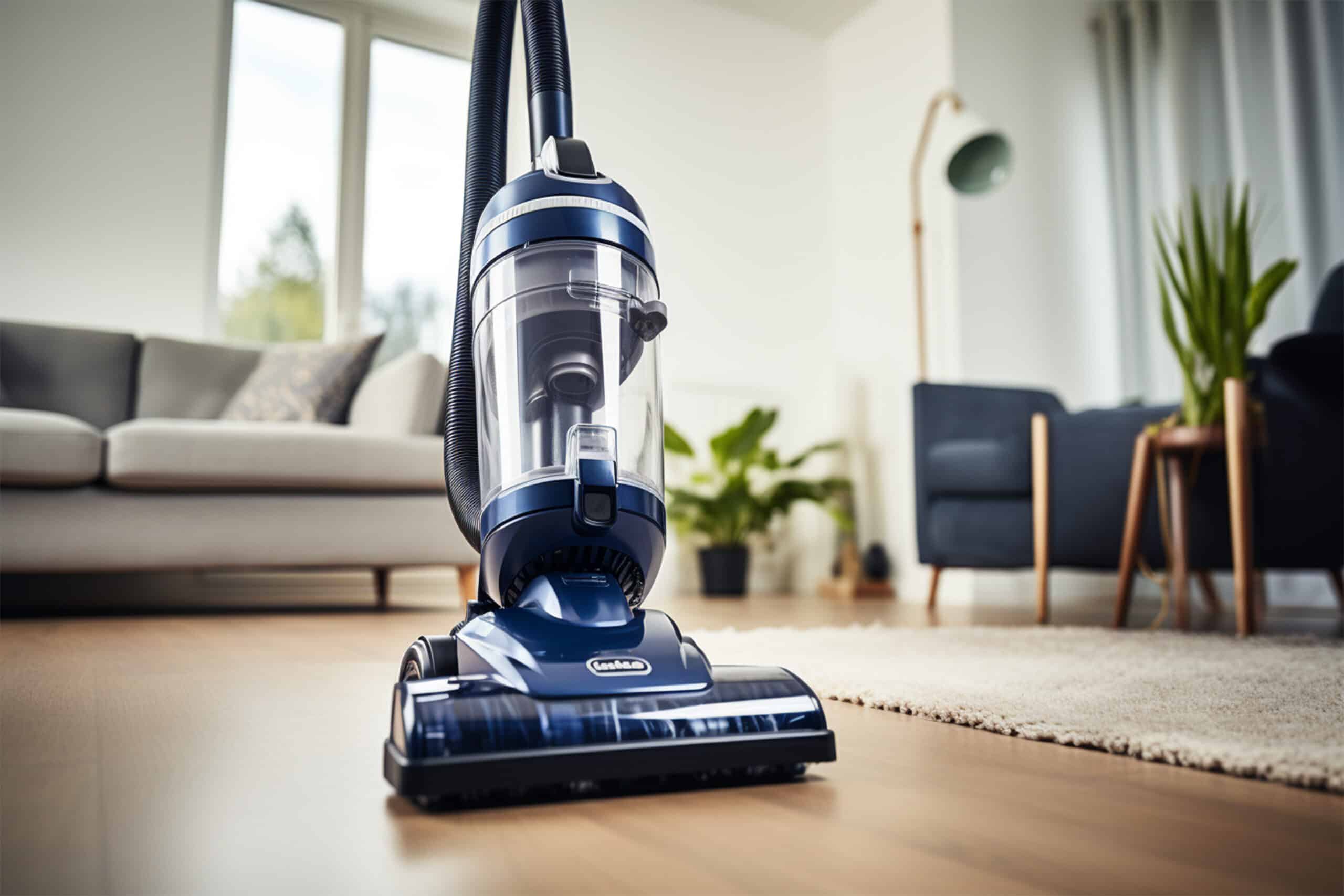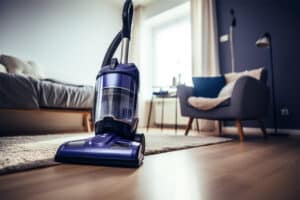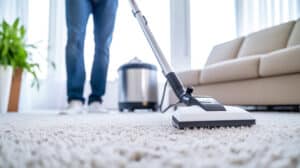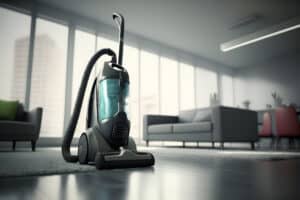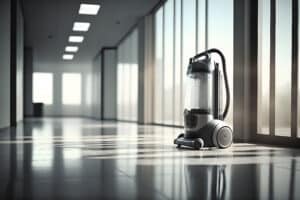How To Clean A Vacuum Cleaner That Smells?
Key Takeaways
- Thoroughly clean all parts of the vacuum, including canister/bag, filters, attachments, and brush roll
- Consider using deodorizing agents such as vacuum odor-eliminating beads, fabric softener sheets, carpet powder, scented tablets, essential oils, or baking soda to eliminate odors
- Establish a regular maintenance routine, including emptying the bag/canister, cleaning filters, washing hoses/brushes, sanitizing attachments, and using odor-absorbing products
A smelly vacuum cleaner can be a nuisance and make cleaning your home an unpleasant experience. However, with the right cleaning techniques, you can eliminate those unpleasant odors and enjoy a fresh-smelling vacuum once again. In this article, we will explore the best ways to clean a vacuum cleaner that smells, providing you with practical tips and solutions to banish those odors for good.
Thoroughly Clean the Vacuum
One of the first steps to take when dealing with a smelly vacuum cleaner is to thoroughly clean all its parts. This includes the canister or bag, filters, attachments, brush roll, and any other components that may be harboring dirt, debris, or pet hair that could be causing the unpleasant odor.
Start by emptying the canister or replacing the vacuum bag. If using a bagless vacuum, clean the canister with warm soapy water and a towel, sponge, or cleaning brush. For bagged vacuums, make sure to replace the bag with a fresh one to prevent any trapped odors from lingering.
Next, remove and clean the filters. Depending on the type of vacuum cleaner you have, the filters may be washable or need to be replaced. If they are washable, rinse them with lukewarm water, gently squeezing them until the water runs clear. Allow the filters to air dry completely before placing them back in the vacuum cleaner.
Don’t forget to remove the attachments and wash them with soap and water. This will help remove any dirt or debris that may be contributing to the odor. Allow the attachments to dry thoroughly before reattaching them to the vacuum cleaner.
It’s also important to address any tangles or odor-causing buildup on the brush roll. Use scissors or a razor blade to carefully remove any hair or debris that may be wrapped around the brush roll. This will not only help eliminate odors but also improve the vacuum’s performance.
Consider Deodorizing Agents
In addition to thoroughly cleaning the vacuum, you can also use deodorizing agents to add a pleasant scent and eliminate odors. Here are some options to consider:
- Vacuum odor-eliminating beads: These specially designed beads can be placed in the vacuum’s canister or bag to neutralize odors. They release a fresh scent while you vacuum, leaving your home smelling clean and fresh.
- Fabric softener sheets: Place a fabric softener sheet inside the vacuum’s canister or bag to add a pleasant scent as you clean. The sheet will release its fragrance, helping to combat any unpleasant odors.
- Carpet powder: Sprinkle a carpet powder designed to eliminate odors on your carpets before vacuuming. As you vacuum, the powder will freshen up your carpets and leave a pleasant scent behind.
- Scented tablets: Some vacuum cleaners come with scented tablets that can be added to the canister or bag. These tablets release a pleasant fragrance as you clean, making the cleaning process more enjoyable.
- Essential oils: Add a few drops of your favorite essential oil onto a cotton ball or tissue and place it inside the vacuum cleaner bag or canister. As you vacuum, the heat and suction will release the scent, freshening up your home.
- Baking soda: Sprinkle a small amount of baking soda on your carpet before vacuuming to eliminate unpleasant smells. Baking soda is known for its odor-absorbing properties and can help neutralize any lingering odors in your vacuum.
Using these deodorizing agents can enhance the cleaning experience and leave your home smelling fresh and inviting.
Regular Maintenance and Prevention
To prevent odors from recurring, it’s important to establish a regular maintenance routine for your vacuum cleaner. Here are some additional tips to keep your vacuum smelling fresh:
- Empty the vacuum bag or canister after each use to prevent the buildup of dirt, debris, and odors.
- Clean the vacuum filters regularly to remove dust, dirt, and other particles that can cause odors.
- Wash the vacuum hose and brushes with mild detergent and water to remove any trapped dirt or debris.
- Sanitize the vacuum attachments by removing them and cleaning them thoroughly.
- Consider using odor-absorbing products like baking soda, scented beads, or activated charcoal to neutralize odors in the vacuum.
- Follow the manufacturer’s instructions for proper cleaning and maintenance of your specific vacuum cleaner model.
By incorporating these preventive measures into your cleaning routine, you can keep your vacuum cleaner smelling fresh and performing at its best.
Related Websites:
Here are some additional resources for further information:
FAQs:
Q: Why does my vacuum cleaner develop unpleasant odors?
Vacuum cleaners can develop unpleasant odors due to the accumulation of dirt, dust, and debris, presence of pet hair or organic material, and mold or mildew growth caused by moisture or humidity.
Q: How can I clean a smelly vacuum cleaner?
To clean a smelly vacuum cleaner, follow these steps:
1. Unplug the vacuum cleaner and remove the bag or canister, ensuring proper safety precautions and disposal methods.
2. Clean the filters, following instructions specific to your vacuum cleaner model and recommended cleaning methods.
3. Clean the brush roll and nozzle by removing entangled hair, strings, or threads, and wiping or brushing away remaining dirt or debris.
4. If there are odors caused by mold or mildew, identify the signs, then clean and disinfect the vacuum cleaner using vinegar or a mild detergent solution. Ensure components are properly dried before reassembly.
5. Maintain your vacuum cleaner by emptying the bag or canister after each use, cleaning the filters regularly, ensuring the brush roll and nozzle are debris-free, and storing the vacuum cleaner in a dry and ventilated area.
Q: What are the signs of mold or mildew growth in a vacuum cleaner?
Signs of mold or mildew growth in a vacuum cleaner include a musty odor, visible black or greenish spots, or the presence of mold spores on the filters or inside the canister or bag.
Q: How often should I clean the filters of my vacuum cleaner?
The frequency of cleaning the filters depends on the manufacturer’s recommendations for your specific vacuum cleaner model. However, it is generally recommended to clean the filters every one to three months to maintain optimal performance and prevent odors.
Q: Why is it important to regularly clean my vacuum cleaner?
Regularly cleaning your vacuum cleaner is important to maintain its efficiency and prevent odors. Clean filters and a debris-free brush roll and nozzle ensure maximum suction power, while proper maintenance prolongs the lifespan of your vacuum cleaner.

